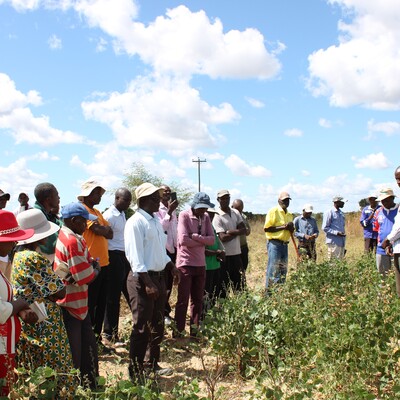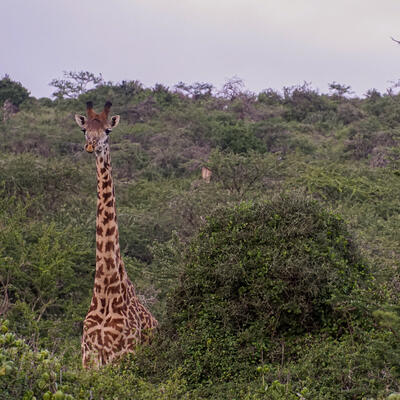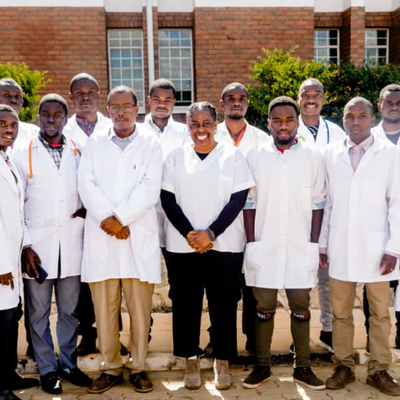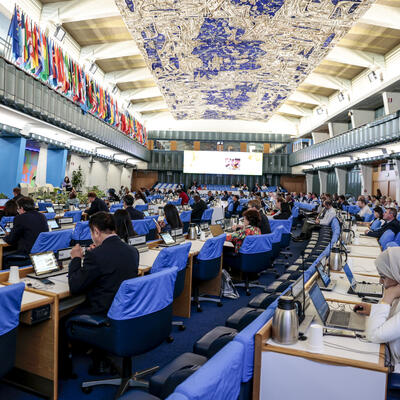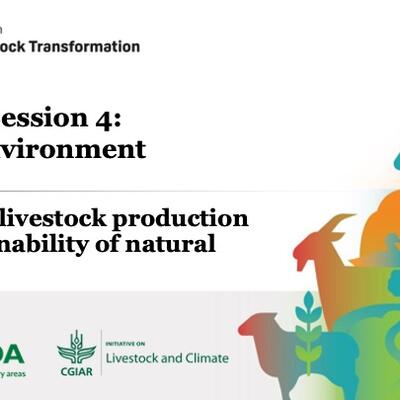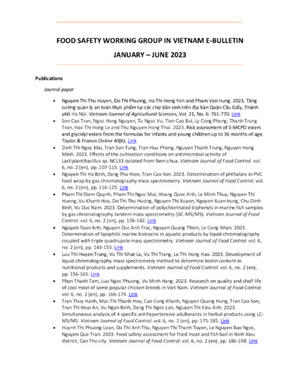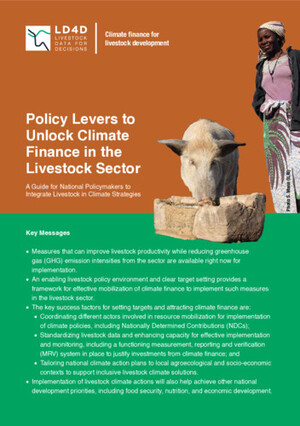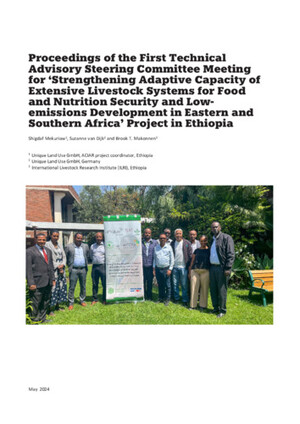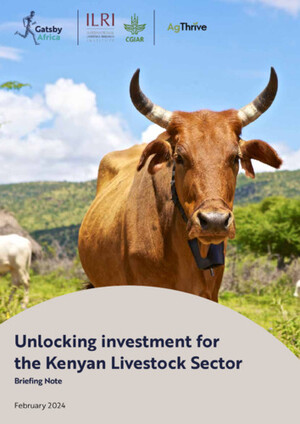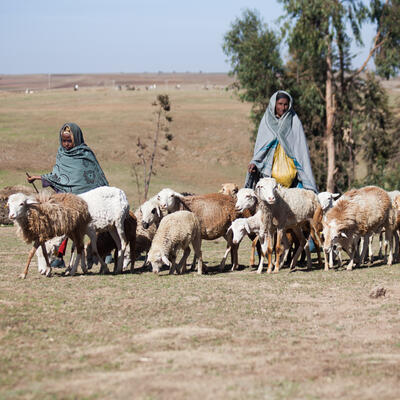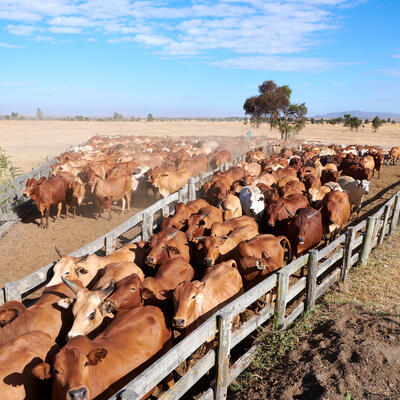
International Year of Rangelands and Pastoralists: A Mongolian proposal to the UN for 2026
Written by Cynthia Mugo (ILRI) and Lavinia Scudiero (GASL).
 Milking yaks in the highlands of China (photo credit: Marc Foggin/iyrp.info).
Milking yaks in the highlands of China (photo credit: Marc Foggin/iyrp.info).
In Aug 2019, the Mongolian Government began to petition the United Nations to declare an International Year of Rangelands and Pastoralists (IYRP) to increase global awareness of their importance for food security and ecosystem services. Supported by the IYRP International Support Group (ISG) along with many others, including several members of the Global Agenda for Sustainable Livestock (GASL) and the International Livestock Research Institute (ILRI), Mongolia is navigating its way through the rigorous diplomatic process of getting a UN resolution passed. On 2 Oct 2020, the Committee on Agriculture (COAG) of the UN’s Food and Agriculture Organization (FAO), after more than 50 governments and 150 organizations from every continent expressed their support, endorsed the Mongolian Government’s proposal to declare an IYRP in 2026.
This endorsement gives millions of pastoralist families a reason to celebrate. With the Sustainable Development Goals (SDGs) promising to achieve universal benefits and leave no one behind, the emphasis on sustainability, equity and inclusion makes the IYRP highly significant. ‘The IYRP could enhance governments’ awareness and capacities to deliver on the SDGs and other global development and environmental goals in such marginal areas,’ said Tumur-Uya Jambaltseren, state secretary of the Mongolia Ministry of Food, Agriculture and Light Industry.
The Mongolian Government’s proposal, as endorsed by the COAG, will be considered by the UN General Assembly in 2021. If passed, the resolution will encourage the international community to raise awareness at all levels of the need to protect and sustainably enhance rangelands and pastoralists for improved livelihoods, healthy ecosystems and related components of sustainable development, including providing greater education and learning opportunities (SDG 4), improving health services (SDG 3), increasing attention to the needs of pastoral women and rural youth (SDG 5), promoting sustainable peace (SDG 16) and fostering global partnerships (SDG 17).
According to this well-supported Mongolian proposal, the objective of celebrating IYRP 2026 is twofold:
- To focus world attention on the role that pastoralists play in food security, poverty eradication, environmental services and sustainable natural resource use—thereby increasing global understanding and action to support pastoralists and deliver on the SDGs.
- To enhance dialogue among different actors and, not least, to support pastoralists in collaborating with others and making themselves seen, heard and included in policymaking and decision-making that shape their everyday lives—from the local community level to global fora.
Within the framework of sustainable practices, pastoralism is increasingly recognized as a production system that plays a major role in safeguarding ecosystems and biodiversity. Pablo Frere, of the international civil society organization Redes Chaco, based in Argentina, noted that pastoralist systems have great capacity to respond to changes; they generate healthy and affordable foods for all layers of society, especially the poorest, but are still generally unseen and little known by those making political decisions. Uniquely, this initiative brings together millions of pastoralists worldwide—from the Global South and North, from the dry savannahs of Africa and Asia to the green pastures of Europe and Latin America, from the treeless icy tundra of the Arctic to the rolling grassy steppes of Mongolia. In all these pastoral regions, herders graze animals primarily on natural vegetation and are intimately and synergistically related to their animals and their environments. Because this form of extensive livestock farming enhances biodiversity, soil quality and nutrient cycling, animal herders serve as frontline stewards of their vast pastoral environments.
 Pastoral herds at a watering point in Somalia (photo credit: Wolfgang Bayer/iyrp.info).
Pastoral herds at a watering point in Somalia (photo credit: Wolfgang Bayer/iyrp.info).
Once the UN General Assembly declares an IYRP for 2026, a wide diversity of actors will play a wide array of roles. For instance, the German schäfermeister (shepherd master) Knut Kucznik sees a future for shepherds to ‘green’ Europe. ‘We can make meat from grass; we use and reuse things that nobody else does. We make food from garbage,’ he said. ‘We keep the air, water and earth clean. The more of us there are, the cleaner the air, water, the earth and plants are.’ All pastoralists can use the IYRP to mobilize themselves and raise awareness of issues that are of critical importance to them. Researchers can work together to consolidate and collect data on rangelands, filling significant gaps identified; policymakers can create more enabling policy environments for pastoralists and rangeland investments to optimize opportunities for improving pastoral livelihoods and productivity; and development partners can increase investments for interventions specifically addressing the needs of pastoralists.
Such actions taken by individuals, governments, private-sector companies, non-governmental organizations and development partners—collective actions—will be critical also in facing new challenges such as the current COVID-19 pandemic. One Health approaches, which integrate human, animal and environmental health expertise, and, more specifically in pastoral regions, a strong rangelands-health component, should become the backbone of global responses to zoonotic pandemics in future. The IYRP proposal stresses the importance of maintaining an ecologically sound and wise use of rangelands so as to continue producing nourishing animal-source foods with relatively low levels of external inputs. By proactively supporting the world’s great rangelands and their diverse pastoral ways of life, we are not only protecting human, animal and environmental well-being and health but also helping to overcome some of the greatest global challenges.






